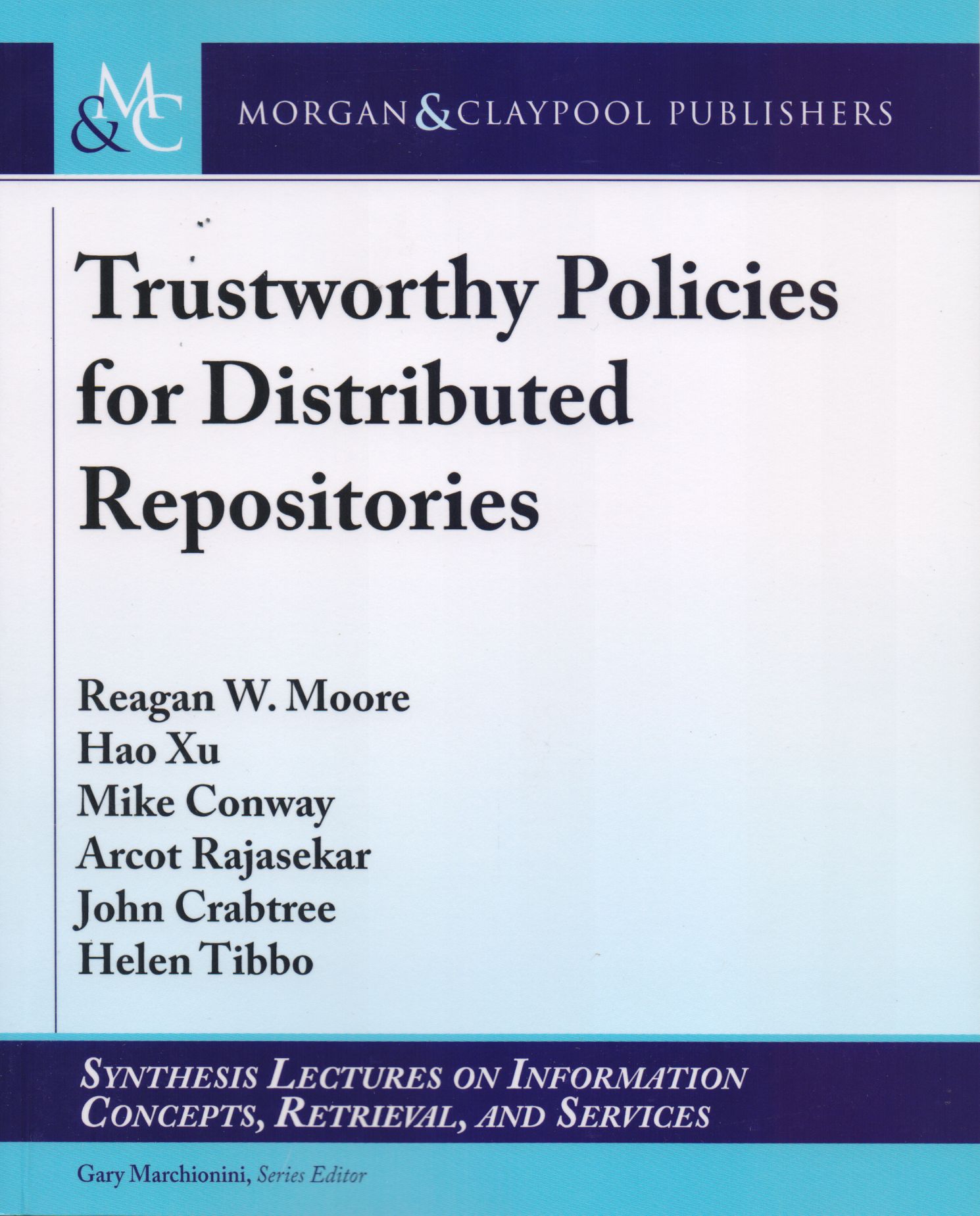Libros relacionados
 |
Scholarly Collaboration On The Academic Social Web He, Daqing / Jeng, Wei Morgan & Claypool Publishers |
 |
Database Anonymization: Privacy Models, Data Utility, And Microaggregation-Based Domingo-Ferrer, Josep / Sánchez, David / Soria-Comas, Jordi Morgan & Claypool Publishers |
 |
Dynamic Information Retrieval Modeling Hui Yang, Grace / Sloan, Marc / Wang, Jun Morgan & Claypool Publishers |
 |
Learning From Multiple Social Networks Nie, Liqiang / Song, Xuemeng / Chua, Tat-Seng Morgan & Claypool Publishers |
 |
Trustworthy Policies For Distributed Repositories W. Moore, Reagan / Xu, Hao / Conway, Mike / Rajasekar, Arcot Morgan & Claypool Publishers |
 |
Notion Of Relevance In Information Science, The: Eveybody Knows What Relevance I Saracevic, Tefko Morgan & Claypool Publishers |
 |
Semantic Interaction For Visual Analytics: Inferring Analytical Reasoning For Mo Endert, Alex Morgan & Claypool Publishers |


|
Título: Enduring Paradigm, New Oportunities | |
| Autor: Gilliland-Swetland Anne | Precio: $200.00 | |
| Editorial: Council On Library And Information Resources | Año: 2000 | |
| Tema: Informacion, Digital | Edición: 1ª | |
| Sinopsis | ISBN: 1887334742 | |
| The Web is spawning a large mass of information of varying quality and value. From that huge, undifferentiated mass, librarians must sift carefully and assiduously to find material for their patrons that is valuable and trustworthy. Selecting published items for acquisition has presented many challenges over the years, but librarians have been trained to meet those challenges and to shape collections that best serve the needs of their users. What skills and practices will help them in the realm of electronic information?
As intellectual content migrates from print, film, and tape to electronic formats, it moves from a world characterized by the fixity and relative permanence of the medium into one in which the stability of the text is easily compromised, the permanence of the intellectual content hard to ensure, and the means of accessing the information controlled by the user, not the creator, publisher, or librarian. The new forms of electronic communication often have more in common with unpublished materials and gray literature than with the materials librarians usually see. Even electronic journals pose problems of version control and challenges to long-term accessibility that are unknown in the print world. |
||
Librería Bonilla SA de CV © Todos los derechos reservados. 2019
Última actualización: Jul 2019




